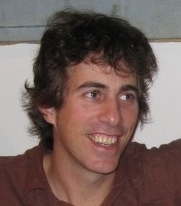A Quote by Dorothy L. Sayers
Detective stories keep alive a view of the world which ought to be true. Of course people read them for fun ... But underneath they feed a hunger for justice ... you offer to divert them, and you show them by stealth the orderly world in which we should all try to be living.
Related Quotes
Making fiction for children, making books for children, isn't something you do for money. It's something you do because what children read and learn and see and take in changes them and forms them, and they make the future. They make the world we're going to wind up in, the world that will be here when we're gone. Which sounds preachy (and is more than you need for a quotebyte) but it's true. I want to tell kids important things, and I want them to love stories and love reading and love finding things out. I want them to be brave and wise. So I write for them.
Your worst parts of your life, the things that you're ashamed of will become your strongest assets in a very quick amount of time. And the implication in that is your story is all that you have so passing it on to someone else who is struggling behind you coming up the ladder helps them. And so in the spirit of service in recovery we often talk about the power of our own stories to connect with other people and show them that they too can get well. I have found that not only is that true in the recovery world, but it is true in the social world in the social milieu in which I exist.
The more students work at storing the deposits entrusted to them, the less they develop the critical consciousness which would result from their intervention in the world as transformers of that world. The more completely they accept the passive role impressed on them, the more they tend simply to adapt to the world as it is and to the fragmented view of reality deposited in them.
The natural tendency of children is to solve problems, but we try to indoctrinate them with facts, which they are supposed to feed back, and then we fail them. And that's child abuse. And you should never raise children that way. You should cultivate and encourage their natural tendencies to create solutions to the problems around them.
When, in the course of human events, it becomes necessary for one people to dissolve the political bands which have connected them with another, and to assume among the powers of the earth the separate and equal station to which the laws of nature and of nature's God entitle them, a decent respect to the opinions of mankind requires that they should declare the causes which impel them to the separation.
You tell them what a happy ending consists of, which is always individual success. You tell them that nothing irrational exists in this world, which is a lie. You tell them that conflict only exists only to be neatly resolved, and that everyone who is poor wants to be rich, and everyone who is ill wants to get better, and everyone who gets involved in crime comes to a bad end, and that love should be pure. You tell them that despite all this they are special, that the world revolves around them.
I have no liking for novels or stories - none in the world; and so, whenever I read one - which is not oftener than once in two years, and even in these same cases I seldom read beyond the middle of the book - my distaste for the vehicle always taints my judgment of the literature itself, as a matter of course; and also of course makes my verdict valuless. Are you saying "You have written stories yourself." Quite true: but the fact that an Indian likes to scalp people is no evidence that he likes to be scalped.
For there is a growing apprehension that existence is a rat-race in a trap: living organisms, including people, are merely tubes which put things in at one end and let them out at the other, which which both keeps them doing it and in the long run wears them out. So to keep the farce going, the tubes find ways of making new tubes, which also put things in at one end and let them out at the other.
To read fiction means to play a game by which we give sense to the immensity of things that happened, are happening, or will happen in the actual world. By reading narrative, we escape the anxiety that attacks us when we try to say something true about the world. This is the consoling function of narrative — the reason people tell stories, and have told stories from the beginning of time.

































